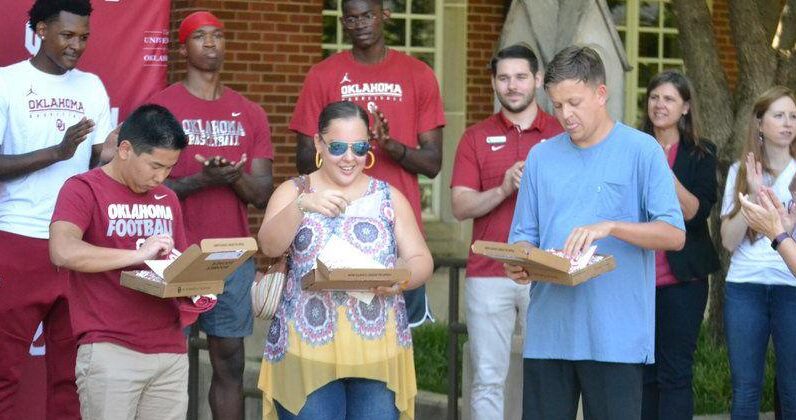
The Oklahoma House recently passed legislation co-authored by a Cleveland County legislator that would award Oklahoma’s Promise scholarships to students with intellectual disabilities.
Senate Bill 322 creates the Oklahoma Higher Education Tuition Assistance Act – Oklahoma Higher Learning Access Trust Fund, which will provide students with intellectual disabilities access to tuition and scholarships for the transition to post-secondary programs.
“I personally love this bill because it puts students with intellectual disabilities on an equal footing with their peers who can now qualify for Oklahoma’s Promise tuition scholarships to attend college or careers” , said Mark McBride, R-Moore.
McBride said many students with certain types of disabilities are at a disadvantage when it comes to college applications, and this bill will give them better access to college or trade school.
“Because of the current GPA requirements for this program, many of these students were left behind when it came to qualifying for this college assistance,” McBride said. “This bill includes specific qualification requirements for this population. I think many of these students will do quite well in college if given a chance, and the same goes for those seeking a trade certificate in our system of career technology”.
Sen. Mary Boren, D-Norman, said the bill would open up the Oklahoma’s Promise grant to help pay for programs like the University of Oklahoma’s Sooner Works, which offers four-year certificate programs to students with intellectual disabilities. intellectual or developmental.
Students would also have access to internships and social organizations, according to its website.
Boren said it’s important for OU students to meet and meet students with different disabilities.
“This program will benefit all students who can share college life with people of diverse abilities and better prepare everyone to share life beyond college,” Boren said.
McBride said many colleges have programs like Sooner Works, or can develop them, and it’s important for colleges to keep track of these students because they can fall through the cracks.
“In terms of college outcomes, I’m sure our colleges can come up with a measure for these students to track their success and spot any areas where adjustments might be needed to help them move forward,” he said. “I want every student to be able to achieve the highest level of learning they desire, and that helps more students. That’s a win in my book.”
McBride said creating opportunities for people with disabilities is not only the right thing to do, but also economically advantageous, as many people with disabilities have the ability to work, but may not have the training to do so.
“Not only will this be life-changing for these students and their families, but it will help Oklahoma fill existing gaps in our workforce,” McBride said. “Companies tell us all the time that they need more skilled and trained workers who are ready to enter the job market when they graduate.
“At the same time, there are a growing number of employers hiring people with intellectual disabilities because they realize they can perform many of the tasks required in the workplace and are often excellent with customers.”
Boren supports the bill, but is pessimistic that the governor will sign it into law given the current political environment in Oklahoma City.
“Unfortunately, the unpopular agenda of subsidizing private K-12 schools has created a roadblock that prevents bills like SB322 from moving forward,” he said. “I hope that once the dust clears, we can get this bill signed by the governor.”
[ad_2]
Source link





